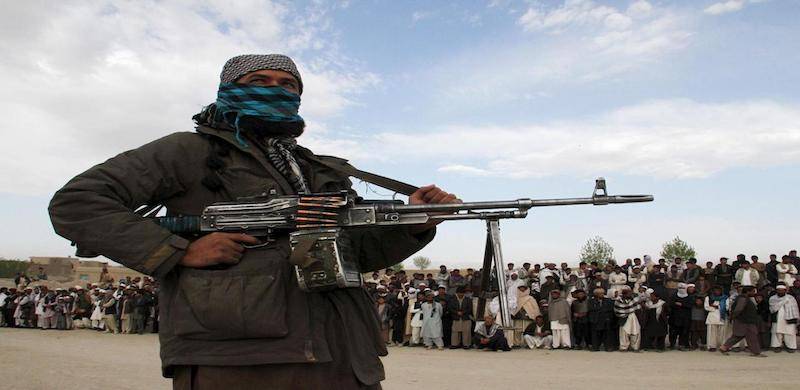
News analysis
During its negotiations with the government, Tehreek-e-Taliban Pakistan (TTP) is said to have adopted a rigid stance towards its demand to reverse the merger of Federally Administered Tribal Areas (FATA) with Khyber Pakhtunkhwa.
In 2018, the tribal areas (previously referred to as FATA) were merged with the Khyber Pakhtunkhwa (KP) province after the 31st amendment to the Constitution. Elections for the provincial assembly seats in the newly merged districts were held for the first time in 2019.
A press release issued by the TTP on Thursday said that returning the 'independent' status of tribes is an important demand among the conditions put forth before the authorities. "This independent status led to the defeat of three super powers," the TTP statement said.
The militant group also termed the merger of FATA into KP a 'conspiracy' of Western powers in a bid to eradicate the religious and cultural values of the tribes.
Is reversal of FATA merger possible?
Ejaz Ahmad, senior journalist who has been covering parliament for the last two decades, says that FATA was merged into KP through a constitutional amendment, and the old status of the region can be restored constitutionally. "This step is not impossible, but it requires a two-third majority in National Assembly as well as the KP Assembly," he said, adding that it is unlikely that such a step will be taken given the current political situation.
He added that when the amendment was being introduced, the then government duly consulted all political parties and stakeholders and the legislation was completed after a tiring process.
Before the amendments, the tribal region was ruled under the Frontier Crimes Regulations (FCR), which meant that the tribal districts were administered by the federal government. After the abolition of the FCR, police and judicial system was set up in the merged districts.
Academic Dr Khadim Hussain is of the opinion that the Taliban want reversal of the merger because they want full control of a region where Pakistan's constitution does not apply. "If this demand is accepted, it would be tantamount to surrendering a part of Pakistan to the Taliban," he added.
He also said that if the region is handed over to the Taliban by undoing the merger of tribal districts, it would became a centre for the Afghan Taliban as well, which would strengthen them politically and financially.
During its negotiations with the government, Tehreek-e-Taliban Pakistan (TTP) is said to have adopted a rigid stance towards its demand to reverse the merger of Federally Administered Tribal Areas (FATA) with Khyber Pakhtunkhwa.
In 2018, the tribal areas (previously referred to as FATA) were merged with the Khyber Pakhtunkhwa (KP) province after the 31st amendment to the Constitution. Elections for the provincial assembly seats in the newly merged districts were held for the first time in 2019.
A press release issued by the TTP on Thursday said that returning the 'independent' status of tribes is an important demand among the conditions put forth before the authorities. "This independent status led to the defeat of three super powers," the TTP statement said.
The militant group also termed the merger of FATA into KP a 'conspiracy' of Western powers in a bid to eradicate the religious and cultural values of the tribes.
Is reversal of FATA merger possible?
Ejaz Ahmad, senior journalist who has been covering parliament for the last two decades, says that FATA was merged into KP through a constitutional amendment, and the old status of the region can be restored constitutionally. "This step is not impossible, but it requires a two-third majority in National Assembly as well as the KP Assembly," he said, adding that it is unlikely that such a step will be taken given the current political situation.
He added that when the amendment was being introduced, the then government duly consulted all political parties and stakeholders and the legislation was completed after a tiring process.
Before the amendments, the tribal region was ruled under the Frontier Crimes Regulations (FCR), which meant that the tribal districts were administered by the federal government. After the abolition of the FCR, police and judicial system was set up in the merged districts.
Academic Dr Khadim Hussain is of the opinion that the Taliban want reversal of the merger because they want full control of a region where Pakistan's constitution does not apply. "If this demand is accepted, it would be tantamount to surrendering a part of Pakistan to the Taliban," he added.
He also said that if the region is handed over to the Taliban by undoing the merger of tribal districts, it would became a centre for the Afghan Taliban as well, which would strengthen them politically and financially.

